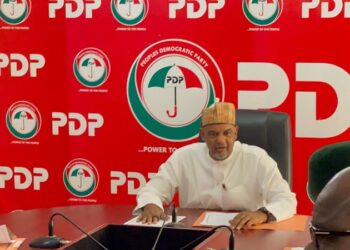Chief executive officer (CEO) of the Nigerian Upstream Petroleum Regulatory Commission (NUPRC), Gbenga Komolafe, has said the commission has secured more than $400 million in decommissioning liabilities, setting stricter rules for recent asset transfers.
Decommissioning liabilities are the future costs a company anticipates incurring to dismantle, remove, and restore property, plant, and equipment to its original condition at the end of its useful life.
In a statement on Thursday, Komolafe, while speaking during his remarks at the Nigerian Extractive Industries Transparency Initiative (NEITI) Companies Forum, held in Lagos, said Nigeria is applying lessons from costly global divestment cases to safeguard its oil and gas sector.
The NUPRC, represented by Efemona Bassey, deputy director, human resources, corporate services & administration, spoke on the theme, “Divestments, Liabilities, and the Impact of Ongoing Reforms on Extractive Companies in Nigeria”.
“The results from 2024 speak for themselves. Over US$400 million in pre-sale decommissioning and abandonment liabilities have been secured through Letters of Credit and escrow accounts,” Komolafe said.
Komolafe stated that the commission had studied global divestment experiences, drawing lessons from the North Sea, where decommissioning costs are projected at £27 billion by 2032, the Gulf of Mexico, with costs exceeding $9 billion, and Canada’s Alberta, where more than 97,000 inactive or abandoned wells carry estimated decommissioning and abandonment costs ranging from C$30 billion to C$70 billion.
He further referenced Australia, where Northern Oil & Gas in 2019 left behind liabilities exceeding AU$200 million.
“Without a robust and enforceable framework for abandonment and decommissioning, divestment transitions can create lasting financial and environmental burdens,” he said.
He emphasised Nigeria’s response to recent divestments, citing sections 232 and 233 of the Petroleum Industry Act (PIA), which assign full responsibility for the decommissioning and abandonment of petroleum wells, installations, structures, utilities, plants, and pipelines to licensees and lessees.
“Host Community Development Trust obligations are fully honoured. Environmental remediation commitments worth over US$9.2 million have been pledged while awaiting the formal gazetting of the ERF Regulations,” Komolafe said.
















